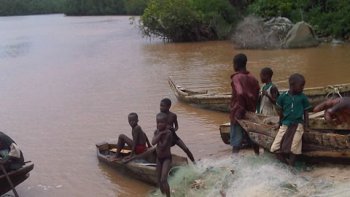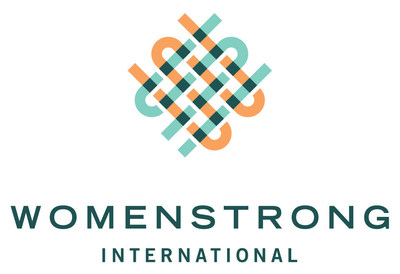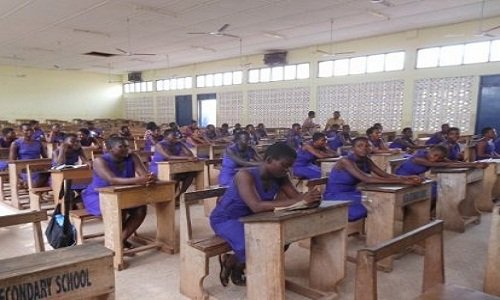La educación desempeña un papel indispensable en la promoción del crecimiento económico y la justicia social y se asocia con una amplia gama de resultados positivos, entre ellos la mejora de la salud y la mejora de los medios de subsistencia. Cada año adicional de escolarización se traduce en un aumento promedio del 10 por ciento en los ingresos de un individuo, eleva el crecimiento medio anual del PIB en un 0,37 por ciento y, en última instancia, contribuye a una sociedad más inclusiva, productiva y comprometida.
El acceso a la educación se ha incrementado considerablemente en África subsahariana con la adopción de los Objetivos de Desarrollo del Milenio (ODM) en materia de educación, Educación para Todos (EPT) y el Objetivo de Desarrollo Sostenible 4 (SDG4). Desde 1999, el número de niños matriculados en escuelas primarias en el África subsahariana aumentó en un 75 por ciento, a 144 millones en 2012. En el nivel secundario y terciario, se observaron aumentos porcentuales aún mayores de 62 por ciento y 80 por ciento respectivamente.
A pesar del progreso, los países de la SSA se enfrentan a niveles de aprendizaje rutinariamente bajos en el sistema escolar público. Al mismo tiempo, los países del África subsahariana han experimentado un crecimiento significativo en la educación privada en las últimas décadas. Entre 2005 y 2014, la matriculación en escuelas primarias privadas como porcentaje del total de matriculaciones en la enseñanza primaria aumentó del 9,78 por ciento al 11,57 por ciento en los países del África subsahariana. Según la base de datos del Instituto de Estadística de la UNESCO (ISU), en 2014 la matrícula de primaria en las escuelas privadas era de 23,2% en Ghana, 16% en Kenia, 19,5% en Uganda, 4,1% en Sudáfrica y 14,9% En Nigeria.
Las escuelas privadas son a menudo consideradas como las reservas de los ricos. Sin embargo, un aspecto llamativo del crecimiento en la educación privada ha sido la proliferación de Escuelas Privadas de Bajos Ingresos (LFPS) que sirven a familias relativamente pobres. Low-Fee La escuela privada o las escuelas dirigidas por empresarios en áreas pobres atienden a aquellos que viven con menos de $ 2 al día. LFPS cobra baja tasa ($ 1 por semana) que es mucho menos que los $ 3.96 [4] gastado por alumno por el gobierno por semana en 2014 en el nivel primario de educación en Ghana.
El crecimiento de estas escuelas ha generado un debate significativo sobre su papel, con algunas críticas a la privatización de la educación básica, que es un derecho humano básico, argumentando que es un servicio que dejó libre al gobierno. Otros aplauden la capacidad del sector privado para llenar la brecha creada por el bajo rendimiento del sistema de educación gubernamental. Varias razones explican la creciente demanda de Escuelas Privadas de Bajos Ingresos (LFPS): incapacidad del sector público para satisfacer la demanda, oferta insuficiente de espacios escolares públicos, baja calidad de la educación pública y educación pública que no satisfacen las diversas necesidades diferenciadas De las familias, que incluyen la enseñanza de lenguas internacionales, el énfasis en la religión, etc.
Razones para el crecimiento del SPLF
Los tutores eligen matricular a sus hijos en escuelas privadas basándose en la educación de mayor calidad percibida en estas instituciones en comparación con sus homólogos de escuelas públicas. A menudo se piensa que los estudiantes matriculados en escuelas privadas obtienen puntuaciones más altas. Estudios realizados por James Tooley (2007, 2009) han encontrado que los estudiantes matriculados en escuelas privadas de bajo costo en India, Nigeria y Ghana generalmente obtienen resultados más altos en las pruebas estandarizadas que en los estudiantes de instituciones públicas.
Las clases en LFPS también tienen un tamaño de clase menor que las escuelas públicas, más contacto entre maestro y alumno, y menos ausentismo docente en comparación con las altas tasas de absentismo escolar del 15 al 25 por ciento en las escuelas públicas en África.
También hay una percepción, especialmente en los países en desarrollo, de que los padres económicamente capaces de enviar a sus hijos a instituciones públicas se preocupan poco por su educación. Adefeso-Olateju (2013), un consultor de política educativa, entrevistó a padres y maestros en instituciones educativas en Lagos. Un comentario de un padre, que era también el director de una escuela privada era «solamente un padre que no ama a su niño lo enviará a una escuela pública». Muchos de los padres entrevistados también asociaron estereotipos negativos con niños matriculados en instituciones públicas, como «de casas malas», «miserables» y «no valoran la educación», mientras que la asociación de palabras positivas con niños matriculados en escuelas privadas, De un buen hogar «,» respetuoso «y» de alta inteligencia «. Esta percepción, independientemente de otros factores, como la calidad de la educación y la calidad de los docentes, es un importante motor de la demanda de los padres para que sus hijos se inscriban en instituciones privadas.
Ventajas y desventajas
Aparte de estas percepciones, las escuelas privadas y los LFPS se caracterizan por ciertas ventajas y desventajas.
Debido a la naturaleza de las escuelas Low Fee Private, se les otorgan beneficios únicos. Una de estas ventajas es que la estructura de financiamiento de estas escuelas puede permitirles estar más equipados que las escuelas públicas. La estructura de financiación diferente de las escuelas privadas significa que pueden ser más tecnológicamente avanzada, lo que afecta no sólo el elemento de aprendizaje de la educación, sino la rendición de cuentas. Por ejemplo, eSchools en Zambia utiliza tabletas y proyectores en las aulas y actualmente está explorando el uso de tecnología de huellas dactilares para rastrear la asistencia de maestros y alumnos. En Ghana, un estudio realizado por IDP Foundation y Results for Development Institution (2016), observando 150 LFPS en 5 regiones encontró que los flujos de ingresos en LFPS en Ghana no son diversificados, con 84 por ciento de los ingresos anuales de matrícula y cantina matrícula. Esto hace que sólo un tercio de los LFPS sean rentables y sólo el 13% disponga de los recursos adecuados para pagar los proyectos de mejora de la calidad. Con más opciones de ingresos, como el acceso a los préstamos, LFPS en Ghana podría tomar una mejor ventaja de su financiación independiente del gobierno.
Otro beneficio es que los SPFL pueden aprovechar la autonomía de la intervención gubernamental. Esto puede conducir, por ejemplo, a instituciones privadas que supervisan a los docentes con más frecuencia de lo que se requiere en las instituciones públicas. Un monitoreo más frecuente podría conducir a que los maestros sean capacitados más eficazmente cuando sea necesario. Una reciente evaluación de las necesidades y el impacto del Programa de Escuelas Renovables de los PDI por Resultados para el Desarrollo (2016), que investiga 150 escuelas en Ghana, encontró que más del 80 por ciento del SPFT invierte en la formación de maestros. Sin embargo, en el mismo estudio se recomendó que el LFPS en Ghana pudiera beneficiarse de un aumento en la frecuencia y calidad de la formación docente existente.
Uno de los principales desafíos que se plantea a LPFS es la posible re-aplicación de la desigualdad en el sistema educativo. Aunque las escuelas privadas de bajo costo fueron introducidas inicialmente para proporcionar una alternativa de bajo costo y de alta calidad a la educación para aquellos con bajos ingresos, independientemente de la ubicación geográfica, llenando una brecha dejada por la provisión estatal de educación. Low-Fee Privates school son escuelas dirigidas por empresarios en áreas pobres, que atienden a aquellos que viven con menos de $ 2 al día. Sin embargo, se argumenta que al cobrar por la educación, el LFPS estratifica aún más el sistema educativo, separando a los más pobres de los pobres, que no pueden pagar LFPS, de aquellos que son ligeramente menos pobres y pueden pagar la educación privada. Esto refuerza aún más la desigualdad de ingresos en el sistema educativo. Diversos estudios en la última década (Tooley y otros (2008), Woodhead et al. (2013) han encontrado evidencia débil y poco concluyente para probar que las escuelas privadas llegan realmente a los pobres. Heyneman y Stern (2013) encontraron que sólo el 10-11 por ciento de los estudiantes matriculados en escuelas privadas en Jamaica y Pakistán eran de los dos quantis de ingresos más bajos.
Además de esto, también puede haber desigualdad entre zonas rurales y urbanas a medida que se establezcan más LFPS en áreas urbanas, donde hay más padres que pueden pagar los honorarios cobrados y donde hay mejor infraestructura. Algunos estudios en la India han encontrado que los alumnos de las zonas urbanas tienen más acceso a la educación privada que los de las zonas rurales. Sin embargo, en algunos casos, como en Sudáfrica, se ha encontrado que este tipo de desigualdad geográfica no existe cuando se trata de SPFL. Schirmer et al. (2010) encontró que había un número igual de instituciones estatales y privadas en áreas relativamente remotas en Sudáfrica, lo que significa que LPFS suministra tanta educación como el estado.
Sin embargo, la distancia entre el LFPS y la intervención y monitoreo del gobierno también podría ser una desventaja para el sistema educativo. Estas instituciones privadas no tienen que adherirse a los mismos estándares y regulaciones como aquellos en el dominio público. Debido a esto, las escuelas privadas son heterogéneas, lo que significa que no se puede garantizar una garantía de calidad de la enseñanza y la educación para todas las instituciones.
Otra desventaja asociada con el LFPS es que muchos utilizan maestros poco cualificados o no capacitados, fomentando el aprendizaje de memorias o «mastican y vierten» como se conoce localmente. Aunque se dice que las puntuaciones de los exámenes son más altas en estas instituciones que en las instituciones públicas, se cree que a los estudiantes no se les anima a pensar críticamente.
Conclusión
El acceso a una educación de calidad ya los logros del aprendizaje superior es vital para preparar adecuadamente a los estudiantes para la vida y el mundo del trabajo. Teniendo en cuenta el nivel de educación de los países de Ghana y África subsahariana, las escuelas privadas y el sector de los SPFL tienen un papel importante que desempeñar. La cuestión más importante que deben considerar los responsables de la formulación de políticas en relación con el LFPS es el entorno regulatorio, la sostenibilidad financiera del LFPS y la calidad del producto.
La sostenibilidad financiera del LFPS es muy importante. A pesar de los retos financieros, la esperanza de vida promedio de los SPLL en Ghana es de 14 años. Las escuelas privadas de bajo costo obtienen sus ingresos de las tasas de matrícula cobradas, los ahorros del dueño y su familia, un patrocinador institucional, una dotación o del gobierno. Sin embargo, la mayoría de los LFPS en Ghana depende de las tasas de matrícula como su fuente principal, aprovechando las contribuciones personales cuando sea necesario. Los ingresos inconsistentes y la dependencia de las tasas de matrícula ejercen presión sobre el SPLF, poniéndolos en constante riesgo de quiebra. Sólo un tercio de los LFPS muestreados en Ghana obtuvo ganancias, mientras que los dos tercios hicieron pérdidas o breakeven. Cuando se encuestó, los propietarios de escuelas identificaron la mejora de la infraestructura como una prioridad, sin embargo, carecen de los fondos para hacerlo. Las partes interesadas deben seguir facilitando el acceso de los SPFL a micropréstamos para proyectos de desarrollo de infraestructura.
Es importante buscar la protección de los niños que asisten al SPFL. Para ello, el entorno regulador del SPFT es crucial y debe ser reforzado por los objetivos del plan de estudios, las pruebas de admisión para la educación continua y la salud y seguridad de la infraestructura escolar. Debe haber flexibilidad con algunos requisitos, tales como el número y la especificación del aula y el número de maestros con licencia. Estos generalmente restringen la creatividad del LFPS y deben ser reducidos o eliminados para promover la libertad de experimentar e innovar.
Los países de Ghana y de África subsahariana necesitan encontrar la combinación adecuada de educación pública y privada para asegurar que el creciente número de niños reciba una buena educación tan pronto como sea posible. La contribución de las escuelas privadas y del LFPS a la educación de la SSA no debe ser subestimada. Las escuelas privadas han promovido el derecho a la educación básica entre otros derechos democráticos fundamentales, han aliviado la presión de acceso a la escuela pública, han ahorrado dinero del gobierno, han ofrecido la opción de los padres y han proporcionado un ambiente de innovación que puede informar a todas las escuelas .
UNESCO (2014). Sustainable Development – Post-2015 begins with Education, 2014 6 SSRN, Comparable Estimates of Returns to Schooling Around the World
UNESCO (2010). Education Counts – Towards the Millennium Development Goals
UNESCO (2015), UNESCO’s 2015 Education for All (EFA) Regional Overview: Sub-Sahara Africa Report
Calculated based on the unit cost at the primary level of the education.
Walford, G. (2014). Low-Fee Private Schools and International Aid. [online] www.wise-qatar.org. Available at: http://www.wise-qatar.org/low-cost-private-schools-walford
Adefeso-Olateju, M. (2013). Much ado about low-fee private schools (LFPS). [online] Educationinnovations.org. Available at: http://www.educationinnovations.org/blog/much-ado-about-low-fee-private-schools-lfps
Results for Development, Consumer Insight Consult Africa, for IDP Foundation, Inc (2016); Understanding Household and School Proprietor Needs in Low-Fee Private Schools in Ghana: A Needs and Impact Assessment of the IDP Rising Schools Program
Mcloughlin, C. (2013). Low-cost private schools: Evidence, approaches and emerging issues. University of Birmingham.
Fuente del Artículo:
https://www.ghanamma.com/2017/05/15/imani-education-series-low-fee-private-schools-could-help-achieve-goal-of-basic-education-for-all-in-africa/




 Source:
Source:








 Users Today : 8
Users Today : 8 Total Users : 35460669
Total Users : 35460669 Views Today : 19
Views Today : 19 Total views : 3419764
Total views : 3419764